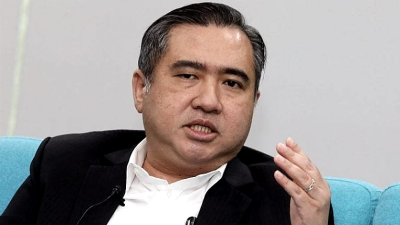The MoHE should provide more positive options for the students so that they won’t overindulge in the flexibility extended to them at the expense of their real academic growth.
Higher education minister Mohamed Khaled Nordin announced that 95 first-degree programs at 19 public universities in the country would be ready to implement the hybrid and flexible learning system from the 2023/24 academic session.
Students pursuing such courses will only be required to attend physical classes on campus in their first and final years while they have the option of doing online learning from home for other years.
At the same time, the minister also confirmed that the duration of study for 44 courses at nine government universities would be shortened from four years to three years.
The minister explained that the flexible learning system and shortened duration of study would allow the students to enjoy more flexibility in organizing their activities, reduce the amount of loans or study costs, while allowing them to enter the job market a year earlier.
Before we assess the pros and cons of this new educational policy, perhaps it is timely for us to first take a look at what some of the world’s most established universities have done.
The Science of Well-Being by Professor Laurie Santos of Yale University has seen 2.5 million people registering for 10-week online program lasting 19 hours, during the pandemic in April 2020.
The University of Pennsylvania also opened up online Master’s courses such as information engineering during the pandemic.
We believe that not only world-class institutions like Yale and Penn were making adjustments to their educational policies in response to the pandemic; many others should have done the same, too.
If this can be practiced successfully abroad, does it therefore mean that the same can also be done here?
To start with, the hybrid and flexible learning system to be introduced from the 2023/24 academic session by the higher education ministry is for first-degree programs with the principal objectives of allowing students to have more flexibility in organizing their activities, reducing their education cost and and opening up the opportunity for them to start working while still pursuing their studies.
But, if this is the main reason for the government’s so-called “hybrid and flexible learning system,” then we have to say we don’t quite agree to that!

First and foremost, we believe that this flexible learning system is only applicable to selected programs and not everything. But even then, students having completed only first year of university curriculum may not be crystal clear about their life directions.
These students will still need the coaching of their tutors and professors to help identify where their real interests and strengths lie, as well as the right approach in learning.
It is unnecessary for the MoHE to be adamantly concerned about the students not having the two extra years to “organize their activities flexibly.”
Secondly, there aren’t many young students yet to reach the age of 20 willing to take the initiative to study on their own, and fewer have any idea how to appropriately organize their activities.
We are worried these two years of university life could have been squandered unproductively. As such, we feel that getting the students physically present at lecture halls at designated times might better suit the prevalent learning culture among our young Malaysians.
Thirdly, another reason offered by the MoHE is that the hybrid and flexible learning system will help cut education cost, including the students’ miscellaneous fees, besides the possibility of them taking up employment in the midst of study.
We have to stress that the duration of an undergraduate program is not really very long, and will soon be behind us before we even realize it.
Anyway, a student’s sole responsibility is to study hard and it is unbecoming for the MoHE to encourage students to start work early just to cut education cost. This contravenes the purpose of university education.
Fourthly, the MoHE has also decided to shorten the duration of study for 44 courses offered at nine government universities from four years to only three.
Instead of allowing the students to complete their programs in just three yeas, why not merge some of the courses or encourage the students to take up dual major programs?
Of course, double major degrees have been offered by many universities for quite some years now. Instead of letting the students choose their second majors, perhaps the MoHE can organize some practical programs from which the students are encouraged to choose.
The purpose of university education is to inculcate the right value system in life, promote lifelong and diverse learning interests, independent thinking, and lay the foundation for a more rewarding life in future.
This is what Yale’s Laurie Santos has taught.
Sure enough it is alright for students to learn from home, but shouldn’t the MoHE provide more positive options for the students so that they won’t overindulge in the flexibility extended to them at the expense of their real academic growth?
ADVERTISEMENT
ADVERTISEMENT








































